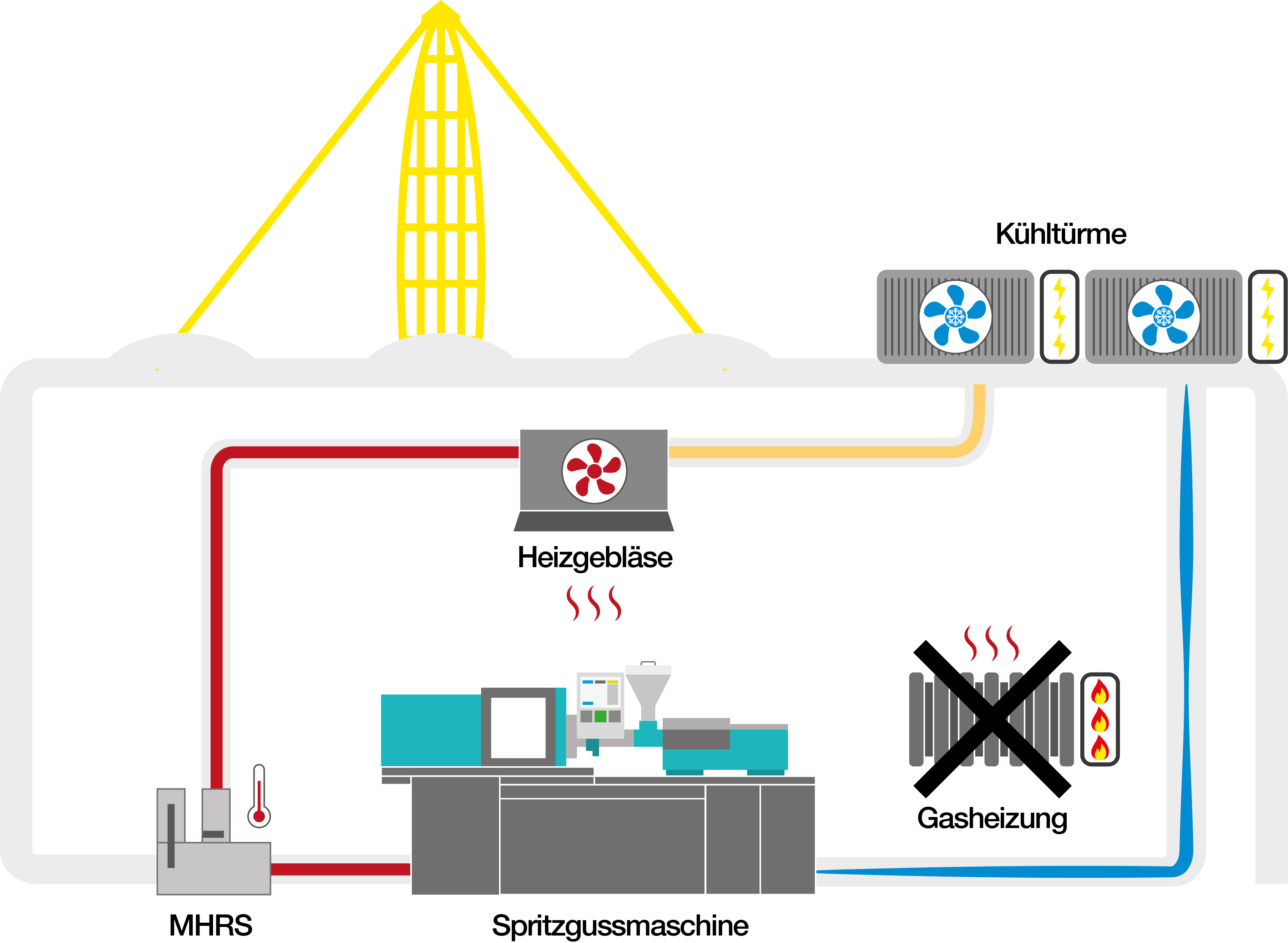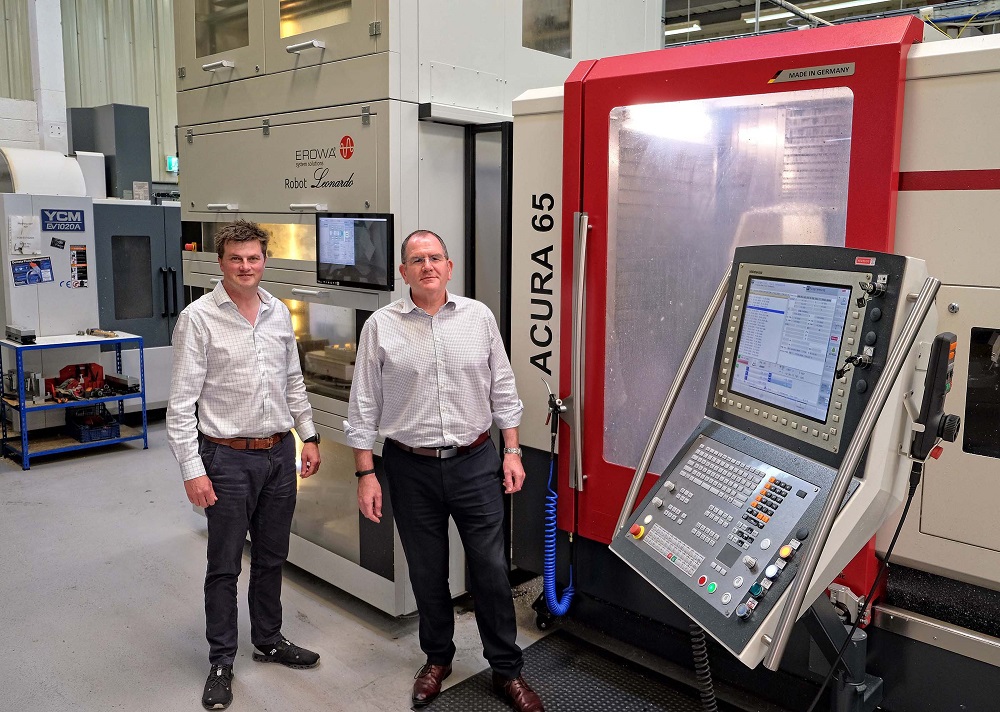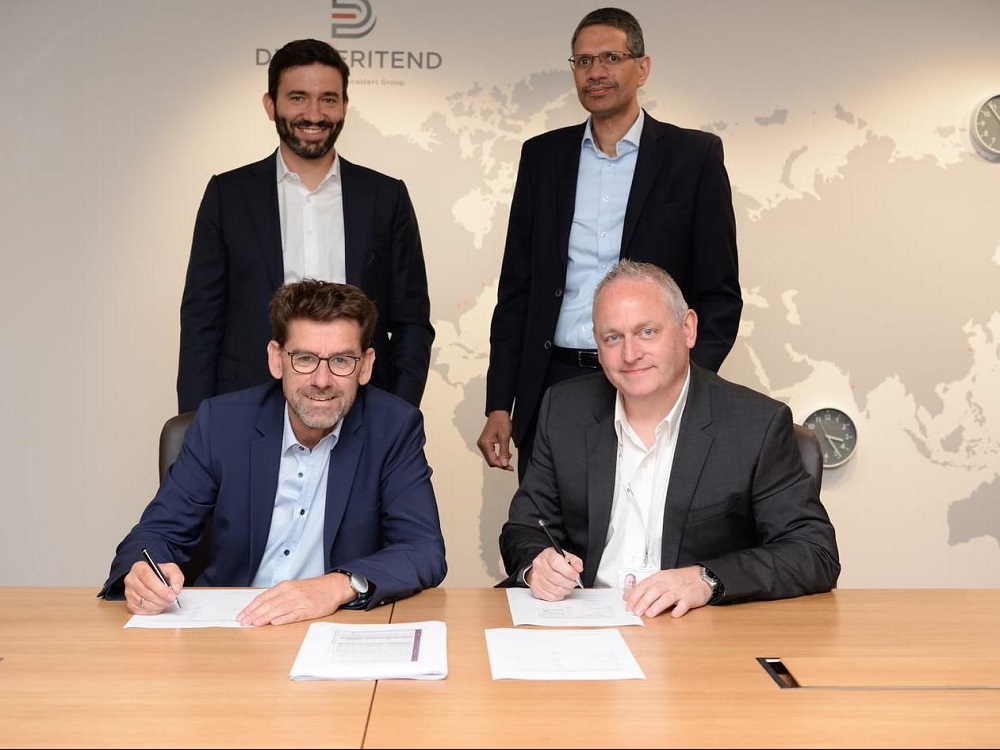It is enormously helpful for production managers to check remotely on the status of machine tools in their factory and find out whether or not a cutting cycle is in progress and the reasons for idle times. One subcontractor that has taken advantage of monitoring software that feeds data back automatically from the shop floor to an office is aerospace subcontractor Automatic Industrial Machines (AIM) in Clevedon, Somerset. The company’strio offive-axis automated production centres (YCM, Hedelius and Mikron) and 19three-axis and five-axis stand-alone machines, all controlled by Heidenhain CNC systems, network with the control manufacturer’s StateMonitor software.
Detailed knowledge of what is happening in every machining centre and collection of data for immediate troubleshooting and long-term analysis has increased output considerably. It is now possible to rectify stoppages quickly, while analysis over time of production centre usage allows the company to try different ways of increasing throughput. Operators know the software is installed and relaying information on their actions over the network, so productivity tends to be higher than it would otherwise be. The long-term records are also useful for planning machine maintenance.
Rob Kendall, managing director of AIM says: “Having access to data in real time is part of what Industry 4.0 is all about. It makes you question why things are being done the way they are and prompts you to think of how production might be improved to raise efficiency.”
He describes the analysis of data from one of the company’s automated five-axis machining centres, a YCM NFX380 served by an Erowa Leonardo pallet storage system. It showed that over a 24-hour period of unmanned running, depending on the mix of components and the cycle times, which can be as short as 15 minutes, the machine was often idle for the last three to four hours as it had run out of work. Six extra Erowa pallets were purchased, bringing the total capacity to 66 positions, to enable the cell to run for a full 24 hours, right up to the 07:00 start of the next day shift. The extra parts produced per day have quickly started to amortise the cost of the additional pallets.
Kendall is a long-time user of Heidenhain-controlled machining centres, dating back to the days of operating Bridgeport mills, and has been close to staff at the German control manufacturer’s UK headquarters in Burgess Hill for more than 25 years. Consequently, the subcontractor was chosen in 2018 as a beta test customer to evaluate an early version of StateMonitor. It was less functional at the time and use of the software lapsed.
Since then, Heidenhain has invested heavily into its digital shop-floor department to develop StateMonitor software further, based on machine shop needs and customer feedback. The product is now fully fit for purpose, providing the user with all the tools and information needed to make strategic decisions. When Heidenhain presented the improved software to Kendall in the latter part of 2022, it had progressed to such an extent that AIM was happy to evaluate it again on five platforms, both automated and stand-alone. By January 2023, the subcontractor had purchased 22 licences for all the machining centres on the shop floor.
Heidenhain (GB) provided a turnkey installation and commissioning service, during which it installed the software on AIM’s server where all the subcontractor’s programs are resident. Every machine’s Heidenhain TNC control is connected by Ethernet cable, although not necessarily directly. Two of six factory units on the other side of Concorde Drive in the Clevedon business centre communicate with the other four units over Wi-Fi to allow the server access to data from the remote machines.
AIM is celebrating its 50th anniversary in 2023. The business has grown organically and consistently over the years, hence the fragmented location of its various operating units. Some 85% of turnover comes from the aerospace sector, the Airbus Filton site being less than 20 miles away. The company mainly machines aluminium structures such as stringers and skin panels up to 6.5 m long, plus some steel and titanium parts for conventional and electric aircraft. AIM also regularly processes aluminium, aluminium-bronze and plastics. The subcontractor additionally supplies the automotive, motorsport, electronics, food processing, packaging and fluid control industries.
Dave Kinch, operations manager at AIM, takes a pragmatic approach to his use of StateMonitor. Although 22 machining centres are connected, he tends to focus on operation of five or six of them, notably the three automated cells, one or two stand-alone five-axis machines and a three-axis model often devoted to the production of a critical titanium aerospace component. Regarding the latter, he was able to spot that the cutting parameters were 1% below optimal and adjust them accordingly. It represented only a small rise in metal removal rate, but over the course of a year it is adding up to a measurable increase in throughput. There would have been little chance of picking up on the productivity shortfall without StateMonitor.
Generally speaking, there is no monitoring of machines that are preparing billets or carrying out minor skimming operations in the Clevedon factory, only those that are performing major finishing operations. However, periodic checks on all the other machines are able to identify inefficiency and trigger intervention. Concentration on keeping an eye on high added-value work avoids having to sift through a large amount of data. So also does restriction of information emailed to Kinch’s smartphone, which essentially only receives a notification if a machine has alarmed out or has been idle for an extended period.
A vast amount of additional data is available if wanted, including job changes, program status and run time, tool changes, spindle speed and feed rates, override settings and other machining parameters, all of which may be useful for some companies but is information that AIM does not presently require routinely. All data is available not only on smartphones but also on tablets, laptops, PCs and on the screen of Heidenhain controls on the shop floor. For the time being, Kinch relies on a single PC in the programming office connected to a wall-mounted screen to monitor the six production areas.
“We have been using StateMonitor for just over six months, so it is still rather early to quantify its benefits,” he says. “However, its utility is clear in respect of our automated prismatic machining cells. For example I have calculated that the YCM NFX380 five-axis production centre, served by the recently expanded Erowa Leonardo store with 66 pallet positions, is already 26% more productive due to the changes we have implemented based on information collected from the Heidenhain StateMonitor software.”
He adds that the output from stand-alone machining centres is more difficult to assess, but his estimate is that they are running and producing parts during the day shift for 83% of the time, versus an industry average of 65%. It is down to better planning of work going on the machines.
While StateMonitor has long been able to connect with many makes of CNC system other than Heidenhain’s via OPC UA, umati, MTConnect, Modbus TCP, or using additional hardware, the latest version 1.5.0 includes for the first time a FOCAS interface for connecting machines with a FANUC control. It means that AIM has the possibility to connect its lathes and turn-mill centres fitted with FANUC CNC systems into the monitoring software to obtain similar optimisation benefits.
For further information www.heidenhain.co.uk



















